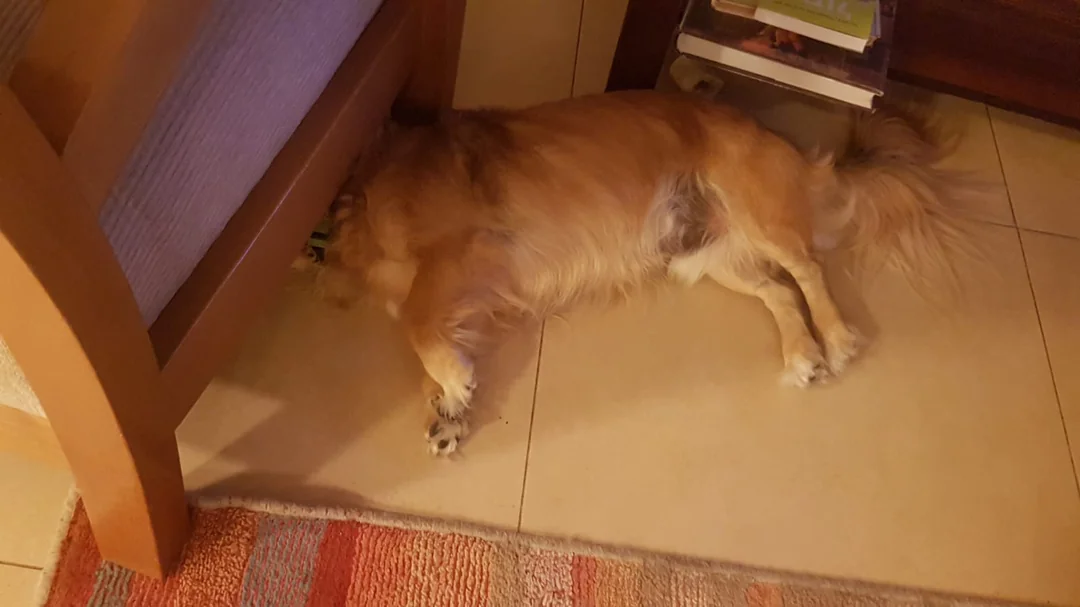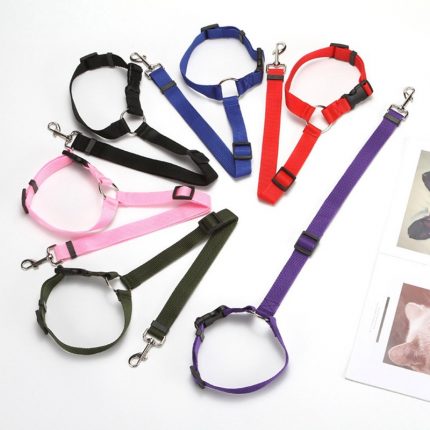Why Does My Dog Rub His Face After Eating?
Dogs are fascinating creatures that often exhibit peculiar behaviors that leave their owners perplexed. One such behavior is when a dog rubs its face vigorously after a meal. If you’ve ever wondered why your furry companion engages in this post-meal ritual, you’re not alone. Many dog owners have observed this behavior and questioned its purpose. In this article, we will delve into the possible reasons behind why dogs rub their faces after eating.
Firstly, it’s important to understand that dogs have a highly developed sense of smell. Their noses are incredibly sensitive, and they rely on their olfactory senses to explore and interpret the world around them. When a dog eats, the aroma of the food can linger on their face, especially around their mouth and nose. By rubbing their face against objects or even your leg, they may be attempting to remove any food particles or residue that could be irritating or distracting to their sensitive noses.
Another possible explanation for this behavior is related to marking territory. Dogs have scent glands located on their face, particularly around their cheeks. By rubbing their face against objects, they can leave behind their scent, effectively marking their territory. This behavior is instinctual and can be seen in wild canines as well. So, when your dog rubs its face after a meal, it could be a way of asserting its ownership over its immediate surroundings.

Furthermore, it’s worth considering that rubbing their face may simply be a form of self-soothing or a way to alleviate discomfort. Just like humans, dogs can experience indigestion, allergies, or even dental issues that may cause discomfort after eating. Rubbing their face against surfaces could provide some relief by stimulating their facial muscles or alleviating any itchiness or irritation they may be experiencing.
In conclusion, the act of a dog rubbing its face after eating can be attributed to various factors. It could be an attempt to remove food residue, mark territory, or alleviate discomfort. Understanding these potential reasons can help dog owners better comprehend their pet’s behavior and ensure their well-being. In the following sections, we will explore additional insights and provide practical recommendations for dealing with this behavior.
The Possible Reasons Behind a Dog Rubbing Its Face After Eating
Sensory Sensitivity and Food Residue
One of the primary reasons why dogs may rub their faces after eating is due to their heightened sensory sensitivity. Dogs have an exceptional sense of smell, and when they eat, the scent of the food can linger on their face. This can be particularly true for dogs with short muzzles or folds of skin around their mouths. The act of rubbing their face against objects or even your leg may be an attempt to remove any food particles or residue that could be irritating or distracting to their sensitive noses. By rubbing, they may be trying to clean themselves and ensure their olfactory senses are not overwhelmed.
Territorial Marking
Another possible explanation for this behavior is related to a dog’s instinctual need to mark its territory. Dogs have scent glands located on their face, particularly around their cheeks. By rubbing their face against objects, they can leave behind their scent, effectively marking their territory. This behavior is a way for dogs to communicate their presence and assert their ownership over their immediate surroundings. So, when your dog rubs its face after a meal, it could be a way of reinforcing its territorial boundaries.
Self-Soothing and Discomfort Alleviation
It’s important to consider that rubbing their face may also be a form of self-soothing or a way to alleviate discomfort. Just like humans, dogs can experience indigestion, allergies, or even dental issues that may cause discomfort after eating. Rubbing their face against surfaces could provide some relief by stimulating their facial muscles or alleviating any itchiness or irritation they may be experiencing. It’s essential to observe your dog’s overall behavior and look for signs of discomfort or distress that may accompany the face rubbing. If you notice any persistent issues, it’s advisable to consult with a veterinarian to rule out any underlying health concerns.
Conclusion
In conclusion, understanding the peculiar behavior of your dog, such as why they might rub their face after eating, can significantly enhance your knowledge and care practices as a pet owner. For an in-depth exploration of this behavior, consider visiting GeePets.com, where you can find a comprehensive guide on “Why Does My Dog Rub His Face After Eating” among other insightful articles dedicated to improving your dog’s well-being.
Additionally, for further reading and resources on canine behavior and health, the American Kennel Club offers a wealth of information that can help you better understand and care for your furry friend. Both these platforms provide valuable insights into the fascinating world of dogs, ensuring you’re well-equipped to cater to your pet’s needs and curiosities.

Practical Recommendations for Dealing with a Dog Rubbing Its Face After Eating
1. Observe and Monitor
Start by closely observing your dog’s behavior after meals. Take note of how frequently and intensely they rub their face, as well as any accompanying signs of discomfort or distress. This will help you determine if the behavior is occasional or if it requires further attention.
2. Maintain Good Oral Hygiene
Consider making some adjustments to your dog’s feeding routine if you’re pondering, “Why Does My Dog Rub His Face After Eating?” Smaller, more frequent meals can help prevent overeating, reducing the chances of indigestion or discomfort, which might lead you to ask, “Why Does My Dog Rub His Face After Eating?” Additionally, using slow-feed bowls or puzzle toys can help slow down their eating pace, minimizing the likelihood of food residue lingering on their face, a common reason behind the question, “Why Does My Dog Rub His Face After Eating?”
Implementing these changes in your dog’s feeding habits not only addresses your concern of “Why Does My Dog Rub His Face After Eating?” but also promotes a healthier eating rhythm for your dog. By understanding and adjusting to your dog’s needs, you’re less likely to find yourself puzzled by behaviors such as when your dog rubs his face after eating, and more equipped to provide a comfortable and satisfying mealtime experience.
3. Adjust the Feeding Routine
Consider making some adjustments to your dog’s feeding routine. Smaller, more frequent meals can help prevent overeating, reducing the chances of indigestion or discomfort. Additionally, using slow-feed bowls or puzzle toys can help slow down their eating pace, minimizing the likelihood of food residue lingering on their face.
4. Check for Allergies or Sensitivities
If you’re wondering, “Why does my dog rub his face after eating?” and suspect that your dog’s face rubbing is due to allergies or sensitivities, consulting with your veterinarian is a crucial step. They can help identify potential triggers that might be causing this behavior, a question often encapsulated in the concern, “Why does my dog rub his face after eating?”
By understanding the specific reasons behind “Why does my dog rub his face after eating?”, your vet can recommend dietary changes or allergy testing to manage the issue effectively. This approach not only addresses your immediate question of “Why does my dog rub his face after eating?” but also ensures your dog’s overall health and comfort are being taken into consideration, providing a comprehensive solution to the problem highlighted by your query, “Why does my dog rub his face after eating?”
5. Provide Environmental Enrichment
To address territorial marking behavior and concerns like “Why Does My Dog Rub His Face After Eating,” it’s essential to provide your dog with plenty of environmental enrichment. This can include interactive toys, which not only keep them physically active but also mentally engaged, reducing the inclination towards behaviors such as face rubbing post-eating.
Regular exercise is another crucial component; it helps in expending excess energy that might otherwise be directed towards “Why Does My Dog Rub His Face After Eating” behaviors. Moreover, mental stimulation through puzzle feeders or training games can divert their focus from using face rubbing as a territory-marking mechanism.
A well-stimulated dog, whose needs for engagement and activity are fully met, is less likely to engage in excessive face rubbing as a way of marking their territory or as a peculiar response to the question, “Why Does My Dog Rub His Face After Eating.” By addressing the root cause of such behaviors with adequate environmental enrichment, the frequency of wondering “Why Does My Dog Rub His Face After Eating” can significantly decrease, leading to a happier and more content pet.
6. Keep the Environment Clean
Regularly cleaning your dog’s feeding area and surrounding surfaces is crucial to minimize the presence of food residue or scents that may trigger face rubbing. If you’re wondering, “Why does my dog rub his face after eating?” it’s often because bits of food or strong smells linger around their mouth and nose area, prompting them to rub their face to clean off the residue. To address the concern of “Why does my dog rub his face after eating?” ensure that you’re not only focusing on the bowl itself but also the area where your dog eats.

Maintaining a clean and hygienic environment can significantly reduce the occurrences of your dog feeling the need to rub his face after eating. By understanding the reason behind “Why does my dog rub his face after eating?” and taking proactive steps to keep the eating area spotless, you help your dog feel more comfortable and reduce the behavior of face rubbing post-meal. This approach not only answers the question of “Why does my dog rub his face after eating?” but also promotes a healthier lifestyle for your pet.
7. Seek Veterinary Advice
If your dog’s face rubbing persists, is accompanied by other concerning symptoms, or if you have any doubts about their well-being, it’s always best to consult with a veterinarian. They can assess your dog’s overall health, conduct necessary tests, and provide appropriate guidance or treatment if needed.
Remember, every dog is unique, and what works for one may not work for another. By closely observing your dog, addressing any underlying health issues, and providing appropriate care and attention, you can help minimize excessive face rubbing after meals and ensure your furry friend’s overall comfort and happiness.















